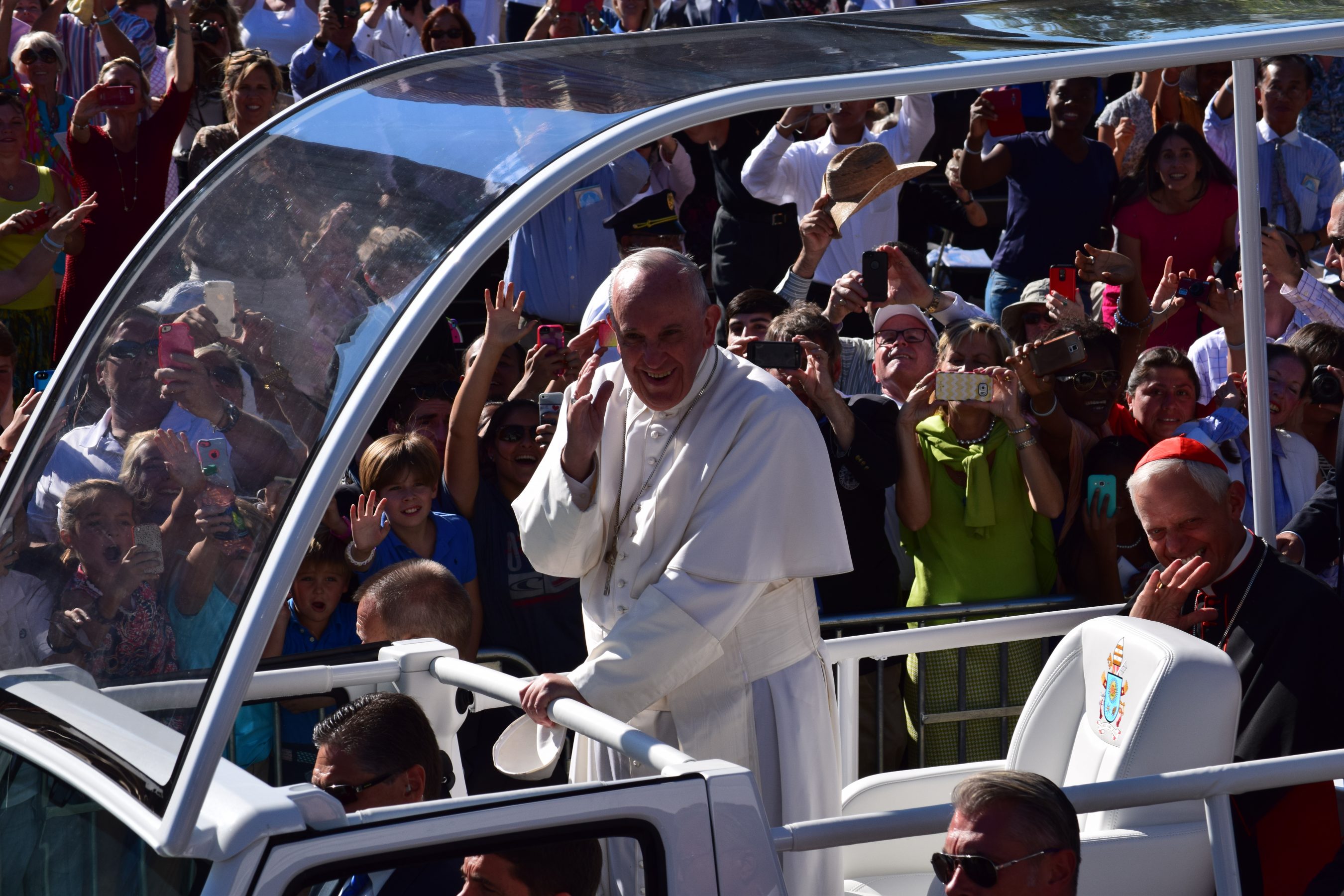In case you missed it, Pope Francis was in town this week. In true American political fashion, both sides of the aisle sought to repurpose his moral authority to suit their policy agendas. We’d prefer to let the pope’s unambiguous ambitions speak for themselves. His visit should be seen as a challenge to do more than just pay lip service to the cause of mitigating climate change. The Editorial Board believes the core message of the pope’s recently-released encyclical on the environment, Laudato Si’ (On Care for Our Common Home), has gone ignored on the Hilltop and farther afield. We owe it to Pope Francis and ourselves to do better.
Climate change, and the threat it poses, is a deeply politicized issue. Representative Paul Gosar (R-AZ), a practicing Catholic, refused to attend the pope’s speech to Congress on Thursday on the grounds that the Pope’s encyclical and subsequent advocacy for environmental reform has reduced him to the status of “a leftist politician.” Climate change is also a hackneyed issue. Anyone with an Internet connection has heard the talking points on each side recited ad infinitum, and just about every Hoya, rendered emotionally exhausted by the scale of the problem, has at one point chosen to ignore rather than engage with advocacy groups like GU Fossil Free.
The Editorial Board knows that climate change poses an existential danger, and that addressing it is a moral imperative. So too does Pope Francis, who has done an admirable job of bringing the issue out of the political arena, to the extent that doing so is possible. We recognize that not everyone agrees with us—people like Rep. Gosar never will—but we contend that you can harbor doubts about climate change and still believe in the utility of exercising better environmental stewardship. In other words, there are compelling reasons to go green, like reducing pollutants and building up a new national infrastructure, that cut across political lines in the sand. They must be acted on, with urgency.
For us students, the pope’s visit is an opportunity to breathe new life into the push towards creating a more environmentally-conscious Hilltop. Encouragingly, much has already been done to make Georgetown a greener place. In June, the university notified the student body of its decision to end direct investment in coal mining companies. Three and a half months later, Georgetown has just about followed through on this promise.
However, mutual fund investments in coal, oil, and gas, as well as direct investments in the oil and gas industries still populate the endowments. In a statement to GU Fossil Free, the university admitted its now-divested investments in coal constituted an insubstantial portion of its total investment in fossil fuel.
It appears to be financially feasible for Georgetown to divest entirely. In April, we reported that Georgetown’s total fossil fuel holdings composed 8 to 10 percent of the endowment—valued at $1.4 billion at the end of the 2014 Fiscal Year. This percentage has obviously decreased, however minimally, with the most recent coal divestment. The endowment, however, has increased markedly with the completion of “For Generations to Come: The Campaign for Georgetown.” The success of this campaign is an example of how Georgetown might compensate for the financial loss incurred by divesting from fossil fuels.
Georgetown has proven itself a leader in sustainability in other areas. The Environmental Protection Agency recently recognized Georgetown as the second largest green-power campus in the U.S. And, after making a 2006 commitment to reduce its carbon footprint, Georgetown made a 70 percent reduction through 2014 by slashing on-campus energy usage and purchasing Renewable Energy Certificates, through which the university supports the production of renewable energy.
So, yes, Georgetown has shown above-average level of dedication to the environment. But the university should go the full nine yards. Abandoning investment in fossil fuels is reconcilable with Georgetown’s financial interests and necessitated by its Jesuit values. Smaller but no less important changes can also be implemented with a view towards sustainability, like using recycled silverware as our colleagues down the hall suggested.
Pope Francis’ visit to Washington should spur Georgetown to further its commitment to being a sustainable and socially-responsible campus. And that demands divesting from fossil fuels. Otherwise, the banners around campus that proudly bear the words “Women and Men for Others” ring somewhat hollow. Pope Francis, more than anyone, would agree.





